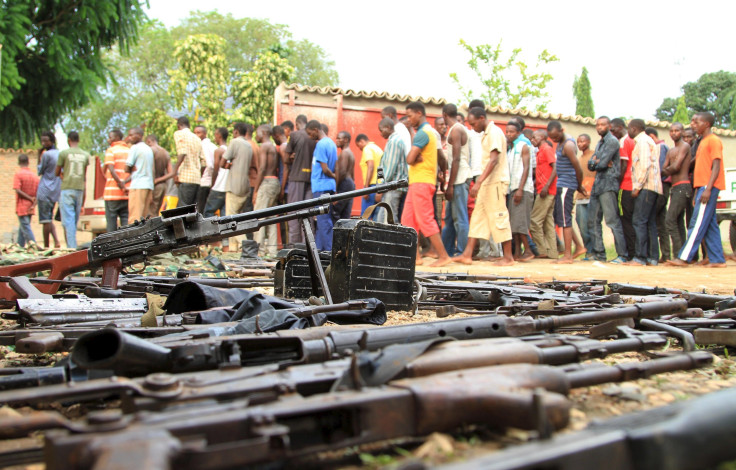In Uganda, Burundi Peace Talks Resume Amid Escalating Violence

Burundi’s warring sides arrived in nearby Uganda Monday to resume peace talks aimed at ending months of escalating violence that has claimed hundreds of lives. The long-stalled negotiations are being led by Ugandan President Yoweri Museveni at the presidential palace in Entebbe, just outside the capital of Kampala, and they will include a Burundian government delegation as well as opposition members and civil society representatives, Agence France-Presse reported.
"I really appeal to you, the two sides, to sit down and have a political solution so that you save the people from the suffering," Museveni said as the talks opened Monday, according to Ugandan newspaper the Daily Monitor.
The African Union, a 54-member regional bloc, announced this month it would send 5,000 peacekeepers to curb violence in war-torn Burundi, despite the Burundian government rejecting the proposed deployment of an “invasion force.” Neighboring Rwanda to the north and Tanzania to the east have both taken a stance against sending forces, saying the conflict requires a political solution rather than a military approach, according to AFP.
There are rising fears that the crisis could force Burundi back into civil war. The conflict began in April when President Pierre Nkurunziza, a former Hutu rebel, said he would run for a third term. Critics said Nkurunziza was violating the constitution and a peace deal that ended 12 years of civil war between Burundi’s Hutu majority and its Tutsi minority. Demonstrations against Nkurunziza’s bid for a third term broke out, and violent clashes erupted between protesters and forces loyal to the ruling party. More than 300 people have died from related violence since then, and over 200,000 people have been displaced.
A failed coup d'etat escalated the situation in May. Then Nkurunziza’s landslide victory in the June presidential election fueled fresh demonstrations and attacks in the capital of Bujumbura. Dozens have been killed since then, including Burundian opposition figures and supporters, as well as a former army chief and a former intelligence chief. Leading Burundian human rights activist Pierre Claver Mbonimpa was shot and seriously wounded in August by gunmen on motorbikes in the capital. Despite the attacks, Nkurunziza was sworn in during a low-key inauguration ceremony in August.
This month, a Paris-based human-rights group accused Burundi’s police of unlawful killings in recent attacks. Security forces loyal to Nkurunziza conducted sweeping raids and arrests in areas of Bujumbura after unidentified gunmen attacked military barracks Dec. 11. At least 300 young men were seized, with more than one-half allegedly killed and the remainder missing, the International Federation for Human Rights and the Ligue Iteka said in a statement Wednesday. Burundi’s military has downplayed the death toll, saying 87 people were killed and 49 were captured, BBC News reported.
© Copyright IBTimes 2024. All rights reserved.











